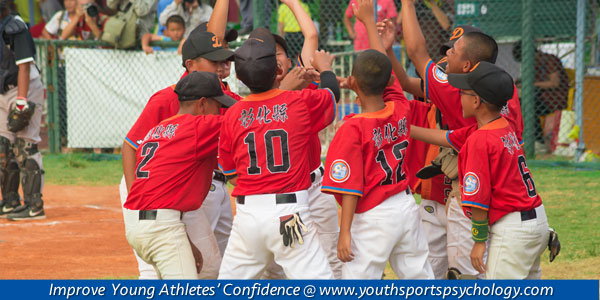
Sports Kids Who Are Their Own Worst Enemy
Young athletes who develop early or who possess raw talent often are their own worst enemies.
Why?
Things come too easy to them. They’re so used to picking things up quickly that they often aren’t open to working hard to learn.
“You need to find ways to motivate and challenge these kids so things aren’t so easy for them,” says Jake Kuritz, a coach, coach instructor, and former Division 1 athlete.
For example, an athlete who is fast and can kick a ball far and accurately might not want to take the time to work on smaller and simpler tasks, he says.
“Often, you see frustration or anger. They’ll say, ‘That’s stupid. I don’t need to learn that. I’ll stick to what I know.’ It’s a comfort zone.’”
In this case, coaches and parents need to step in and be creative, says Kuritz. They need to push these kids out of their comfort zones.
Sometimes, it’s a good idea to let these kids fail when they refuse to work on new skills….
“Let them fail in a controlled environment. Once they fail, let them know you are there for them and show them a better way to do things,” he says.
Kuritz says that as an athlete, he refused to learn how to alternate and use two legs when running hurdles. But once he lost a championship race as a result of this attitude. “It took me losing a championship race because I couldn’t alternate,” he says. And that changed his attitude.
In addition to letting kids fail and then helping them learn the skills you’re trying to teach them, parents and coaches can show young athletes the benefits of learning the skill.
That’s much more convincing than giving them a lecture or showing them a video, Kuritz says.
For example, when teaching kids the value of alternating when running hurdles, Kuritz asks young athletes to run the hurdles their way (without alternating) and then his way—alternating and using both legs.
He times them both ways and then shows them which is more effective. “The clock doesn’t lie,” he says.
It’s critical to help talented or early blooming athletes learn new skills for a number of reasons.
We’ve found that talented athletes are often confident and really trust in their skills, which is generally a good thing.
But they often don’t want to work hard. And that can disrupt the team’s work ethic.
Parents and coaches need to show these kids that they have to do more than simply show up and put their innate talents to good use.
Coaches and parents might even explain to kids that they’re setting bad examples by resisting hard work. Remind them that they’re more likely to succeed if the whole team is working hard.
Related Articles on Kids’ Mental Game:
- How To Motivate Your Young Athletes Without Pressuring Them
- How Friendly Competitions Helps Athletes
- One Sports Parent’s Story About Perfectionism and The Mental Game
*Subscribe to The Sports Psychology Podcast on iTunes
*Subscribe to The Sports Psychology Podcast on Spotify
Improve Your Mental Game From Anywhere In The World

We’re certain that, as a parent, you want to help your child develop confidence and discipline in sports and life. And as a sports parent, you’d love for your children to reach their potential in sports. But encouraging your child to strive for greatness without pressuring them can be a challenge.
You can get expert mental coaching with us from anywhere. Meet with us via Zoom, Skype, FaceTime or phone call. With today’s video technology, we are able to connect with athletes and coaches all over the globe.
Call Us Today to Schedule Your Free 15-Minute Session.
Find Out How Your Athlete Can Benefit From One-on-One Mental Coaching!
